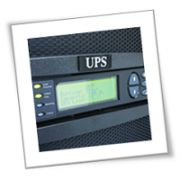Businesses operate in a volatile world where unforeseen events such as cyberthreats and natural disasters can strike at any moment. To ensure your company’s survival, it’s essential to have the following business continuity strategies in place.
Back up your data
The most effective way to ensure business continuity is to back up your data regularly. Having a comprehensive data backup strategy is like having insurance for your most valuable digital assets. If any of your systems fail, become corrupted, or are inaccessible, these backups will allow you to quickly recover and minimize downtime.
When backing up your data, it’s important to consider off-site backups in addition to on-premises solutions. This will ensure that your data is safe in the event of a physical disaster, such as a fire or flood at your primary location. Additionally, cloud-based backup solutions can provide added security and accessibility for your data during times of crisis.
Virtualize your IT infrastructure
Virtualization is the process of creating a virtual version of a physical IT resource, such as a server or desktop. The virtualized resources are put into a virtual machine, which can be easily replicated and migrated to other physical machines as if it were a simple file. This allows for quick and efficient disaster recovery, as virtual machines can be easily backed up and restored to new hardware if necessary. Virtualization essentially provides flexibility and scalability, making it easier to recover your systems and maintain operations without extended downtime.
Install a UPS
Uninterruptible power supplies (UPS) are essential components of your business continuity strategy. They offer protection against power interruptions and surges, allowing your systems to continue running even during electrical outages. A UPS provides a buffer period for you to shut down your systems safely or transition to backup power sources, reducing the risk of data loss and downtime.
Consider a secondary recovery site or temporary hot desk arrangement
In scenarios where your primary business location becomes inaccessible due to natural disasters or other crises, having a secondary recovery site or temporary hot desk arrangement is a lifesaver. This tactic ensures that your employees can continue working, even when the primary workspace is unavailable. Establish agreements with co-working spaces or set up an alternative location where your team can temporarily relocate and access the necessary resources to keep your operations running smoothly.
Implement cloud solutions for remote work
The cloud has revolutionized the way businesses operate and has become a vital component of modern business continuity plans. Cloud solutions provide the flexibility to enable remote work, allowing your team to access essential applications and data from anywhere with an internet connection. This is particularly valuable during unforeseen disruptions, as your employees can work from home or any location, maintaining productivity and business operations.
If you want to ensure business continuity, we can help you develop and implement a comprehensive business continuity plan. Contact us today to learn more about our services.
If you are looking for an expert to help you find the best solutions for your business talk to GCInfotech about a free technology assessment
Published with consideration from TechAdvisory.org SOURCE



